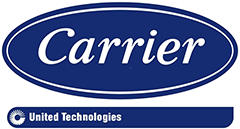ERP stands for enterprise resource planning. It is a software system that helps businesses automate and streamline essential business processes, such as accounting, manufacturing, sales, and customer service.
Supply chain management is the process of planning, organizing, and managing the flow of goods and services from suppliers to customers. It includes activities such as procurement, manufacturing, warehousing, transportation, and logistics.
ERP systems can help businesses improve their supply chain management by providing a single view of all data related to the supply chain. This data can be used to track inventory levels, forecast demand, and optimize production schedules. ERP systems can also help businesses communicate with suppliers and customers, which can help to improve efficiency and reduce costs.

Dynamics 365 Supply Chain ERP Support offers a number of benefits, including:
-
Improved visibility: Dynamics 365 Supply Chain ERP Support provides a single view of all data related to the supply chain, which can help businesses to make better decisions.
-
Increased efficiency: Dynamics 365 Supply Chain ERP Support can help businesses to improve efficiency by automating tasks and reducing the need for manual data entry.
-
Reduced costs: Dynamics 365 Supply Chain ERP Support can help businesses to reduce costs by optimizing inventory levels, improving production schedules, and reducing waste.
-
How to get started with Dynamics 365 Supply Chain ERP Support
To get started with Dynamics 365 Supply Chain ERP Support, you can contact a Microsoft partner or sales representative. They can help you to assess your needs and recommend the right solution for your business.
System Enhancements and Customizations:

Dynamics 365 Supply Chain Management offers a wide range of configuration options that allow you to tailor the system to your specific business processes. You can configure modules such as inventory management, warehouse management, procurement, production, and transportation to meet your unique requirements.

You can extend the functionality of Dynamics 365 Supply Chain Management by developing custom extensions. Extensions can be developed using Microsoft's Power Platform, which includes Power Apps, Power Automate, and Power BI. These extensions enable you to create custom workflows, dashboards, reports, and even integrate with other systems.

Dynamics 365 Supply Chain Management allows you to create custom entities to store additional data that is specific to your business. Custom entities can be used to capture unique information related to products, customers, vendors, or any other entity relevant to your supply chain processes.

You can create custom workflows using the built-in workflow engine in Dynamics 365 Supply Chain Management. Workflows help automate business processes by defining rules and conditions for different activities, such as approval processes, notifications, and data updates.

Dynamics 365 Supply Chain Management provides various integration options to connect with external systems. You can integrate with other Microsoft products like Dynamics 365 Customer Engagement (CRM), Azure services, or third-party applications, enabling seamless data exchange and process automation across different systems.

Dynamics 365 Supply Chain Management includes built-in reporting capabilities, such as Power BI, which allows you to create interactive dashboards and reports. You can customize these reports or create new ones to gain insights into your supply chain operations and make data-driven decisions.
Dynamics 365 Supply Chain Management is a powerful ERP solution that can be customized to meet the specific needs of any organization. Here are some of the ways you can customize Dynamics 365 Supply Chain Management:
System Monitoring and Maintenance:
Monitoring system performance: Regularly monitor the performance of the ERP system to identify any issues or bottlenecks that may affect its functionality and user experience.
Database maintenance: Performing routine maintenance tasks on the ERP database, such as optimizing indexes, updating statistics, and managing database backups and restores.
Patch management: Applying necessary patches and updates provided by Microsoft to keep the ERP system up to date and secure.
Security management: Implementing and maintaining security measures to protect the ERP system and its data.
Error monitoring and troubleshooting: Monitoring the system for error messages, warnings, and other indicators of issues or failures.
Performance tuning: Analyzing system performance data, identifying bottlenecks, and implementing optimization strategies to improve the overall performance and responsiveness of the ERP system
Why Choose atQor for Dynamics 365 Supply Chain ERP Support?
atQor is a leading Microsoft partner that specializes in Dynamics 365 Supply Chain ERP support. We have a team of experienced professionals who are experts in the platform and can provide comprehensive support tailored to your specific needs.
Here are some of the reasons why you should choose atQor for Dynamics 365 Supply Chain ERP support:
- Expertise: atQor has a team of experienced professionals who have in-depth knowledge of Dynamics 365 Supply Chain ERP. We can provide you with accurate and effective solutions to address any challenges or issues you may encounter.
- Microsoft Partnership: atQor is a Microsoft partner, which means we have a close working relationship with Microsoft and access to their resources, tools, and updates. This partnership ensures that you receive the latest information and support related to Dynamics 365 Supply Chain ERP, enabling you to stay up to date with the newest features and capabilities of the platform.
- Customized Solutions: atQor understands that every business has unique requirements and processes. We take the time to understand your organization's specific needs and tailor our support services accordingly. Whether you need assistance with implementation, customization, integration, or ongoing support, atQor can provide solutions that align with your business objectives and drive maximum value from your Dynamics 365 Supply Chain ERP investment.
- Proactive Support: atQor goes beyond just reactive support. We take a proactive approach to identify potential issues, optimize system performance, and ensure that your Dynamics 365 Supply Chain ERP operates smoothly. Our proactive support helps minimize downtime, improve system stability, and enhance overall user experience.
- Customer Focus: At atQor, customer satisfaction is a top priority. We strive to build long-term partnerships with our clients by providing exceptional support and delivering measurable business outcomes. Our team is responsive, attentive, and committed to resolving any support issues or concerns you may have in a timely manner.
- Continuous Improvement: atQor believes in continuous improvement and staying ahead of the curve. We actively invest in training and development programs to enhance our team's skills and knowledge. This commitment to ongoing improvement ensures that we are well-equipped to handle any emerging challenges or changes in the Dynamics 365 Supply Chain ERP landscape.
Overall, by choosing atQor for Dynamics 365 Supply Chain ERP support, you can benefit from our expertise, Microsoft partnership, customized solutions, proactive support, customer focus, and commitment to continuous improvement. Our comprehensive support services will help you optimize your Dynamics 365 Supply Chain ERP implementation and achieve your business objectives effectively.
Contact us today to learn more about our Dynamics 365 Supply Chain ERP support services.
Helpdesk and Technical Support Services
Here are some helpdesk and technical support services for Dynamics 365 Supply Chain ERP:
Phone Support:
Customers can call a dedicated phone number to receive assistance with any issues or questions related to Dynamics 365 Supply Chain ERP. This can include troubleshooting, configuration assistance, and general guidance.
Email Support:
Customers can send their inquiries to an email address and receive detailed responses from support representatives. This is useful for non-urgent queries or when customers prefer written communication.
Live Chat Support:
Customers can chat with a support representative in real time through the Dynamics 365 Supply Chain ERP website or application. This is a convenient way to get help with immediate concerns.
Self-Service Knowledge Base:
Customers can access a comprehensive knowledge base to find answers to common questions and resolve minor issues on their own. The knowledge base includes articles, tutorials, FAQs, and troubleshooting guides.
Remote Assistance:
Support agents can connect to a customer's system remotely to diagnose and fix issues directly. This can be helpful for resolving complex problems or for providing hands-on assistance with tasks.
Software Updates and Patches:
Customers will receive timely updates, bug fixes, and patches for their Dynamics 365 Supply Chain ERP system. This helps address known issues and improves overall system performance.
Our Clients
User Training and Documentation:
Understand the knowledge and skill levels of your users to identify their training needs. This can be done through surveys, interviews, or by working closely with the ERP implementation team.
Develop training materials that cover the key features and functionalities of Dynamics 365 Supply Chain. These materials can include user manuals, step-by-step guides, video tutorials, and interactive e-learning modules. Ensure that the materials are comprehensive, easy to understand, and tailored to the specific needs of your users.
Organize training sessions to educate users on how to effectively use Dynamics 365 Supply Chain. You can conduct in-person training sessions or opt for virtual sessions using video conferencing tools. Consider dividing the training into multiple sessions to cover different aspects of the ERP system.
Offer users the opportunity to practice using the ERP system in a safe environment. Provide access to a sandbox or a training instance of Dynamics 365 Supply Chain where users can explore the features, perform tasks, and gain hands-on experience.
Create a centralized repository of support resources where users can find additional help when needed. This can include FAQs, troubleshooting guides, knowledge base articles, and a dedicated support email or ticketing system.
Encourage users to collaborate and share their experiences and best practices through a user community platform. This can be a dedicated forum, an internal social media group, or a knowledge-sharing portal. Active user participation can foster learning and help address common challenges.




































